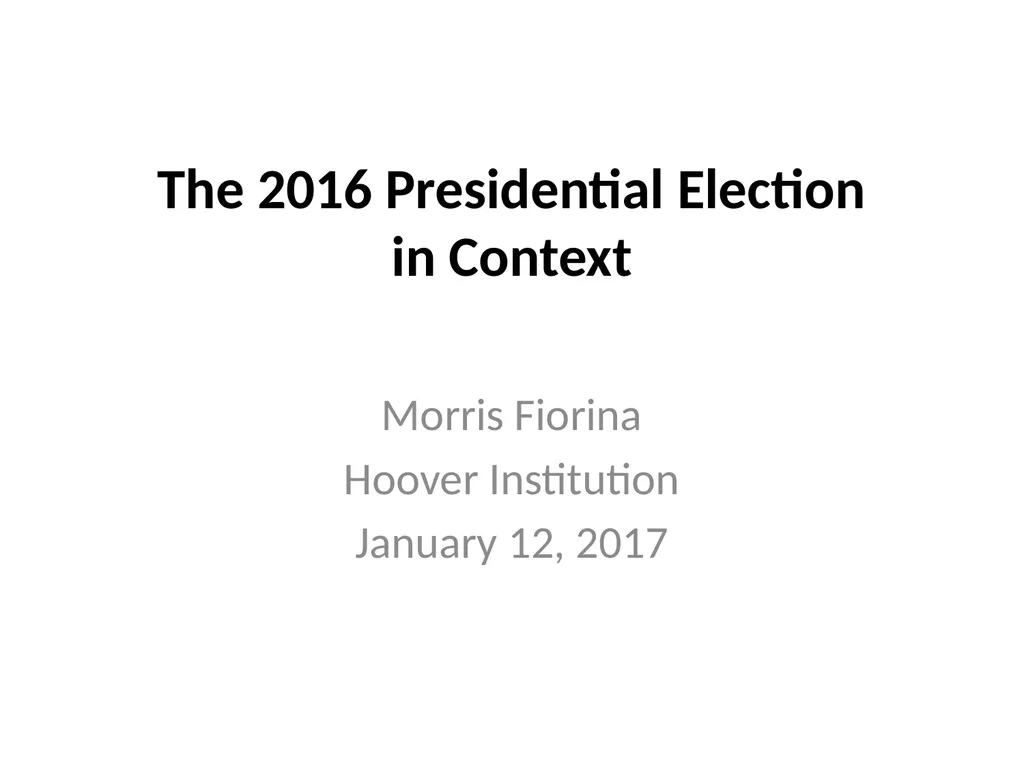
Author : olivia-moreira | Published Date : 2025-05-07
Description: The 2016 Presidential Election in Context Morris Fiorina Hoover Institution January 12, 2017 An Era of Unstable Majorities WHY? The U.S. Political Parties Have Become More Like the Ideological Parties of 20th Century Europe PolarizationDownload Presentation The PPT/PDF document "" is the property of its rightful owner. Permission is granted to download and print the materials on this website for personal, non-commercial use only, and to display it on your personal computer provided you do not modify the materials and that you retain all copyright notices contained in the materials. By downloading content from our website, you accept the terms of this agreement.
Here is the link to download the presentation.
"The 2016 Presidential Election in Context Morris"The content belongs to its owner. You may download and print it for personal use, without modification, and keep all copyright notices. By downloading, you agree to these terms.













